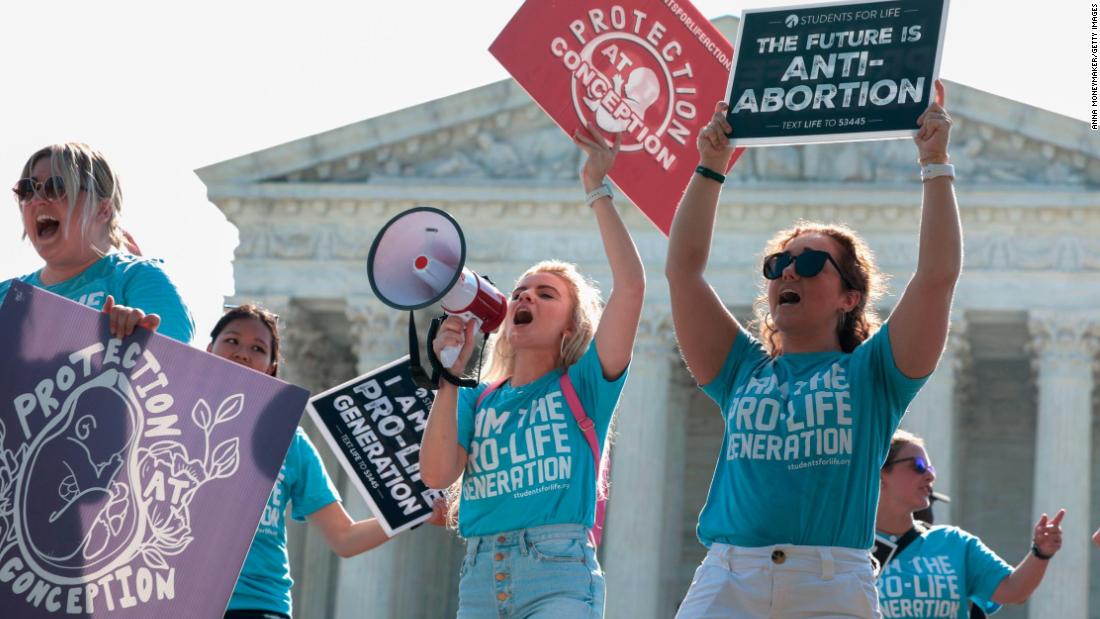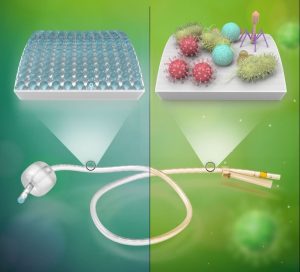
Those who want Roe v. Wade to stand believe it provides women with choice and freedom.
Those of us who feel differently, who fervently want to see Roe overturned, also want freedom for women. We just want it for their unborn children as well.
And if you believe, as I do, that life starts at conception, then you also know that all life — even newly formed life — has inherent dignity and is worthy of protection.
It seems to me that we’ve created a culture where women are not equipped with the information and resources they need to make the best decisions for themselves before and during pregnancy — decisions that would allow them to keep their unborn children. Because they haven’t had access to comprehensive and supportive care that women need during pregnancy, many have felt, mistakenly, that abortion was their only option.
That can be different in the world that comes after Roe. Anti-abortion advocates such as myself want to create a more supportive culture for women that would encourage them to reject abortion. When they do, they will perhaps feel not so much that they’ve given up a right, as they’ve saved a life.
At the pregnancy center in my community, I learned how women can benefit from comprehensive prenatal care, even when their pregnancy is unplanned. I’m sure that such clinics around the country will do the same thing as more women seek out their services, empowering expectant mothers with the support and the resources they need. And I believe deeply that when women truly realize all the options they have at their disposal, they will choose life.
I’m against abortion for another reason: I’ve seen in my own family the beauty that can come out of unexpected and unplanned pregnancies.
After severe and almost deadly complications giving birth to me, my mother was told she couldn’t have any more children. Then a few years later, she became pregnant again.
My mother faced intense pressure from doctors and family members telling her she should get an abortion. She visited doctor after the doctor who didn’t want to take her case out of fear of complications and instead gave her medical advice that abortion was her best option.
I shudder to think what would have happened if my mother had allowed herself to be pressured into ending her pregnancy. Instead, she found a doctor willing to take her on as a patient — one who honored her wish to keep her baby and helped her overcome the medical challenges she faced.
Every day, I see the outcome of my mother’s difficult but wise decision when I see the loving face of my sister Isabella, who is just a few years younger than me. I am eternally grateful that my mother chose life for both of us. My mom’s courage is a daily reminder to me that life is beautiful and worthy of protection.
As a college senior, I’m looking forward to having a full and rich professional life when I graduate before going on to have a family of my own one day. I want to live in a society where a woman can have her child and pursue her career. That is empowering.
I’d also like to live in a culture that provides effective education so that women can make smart and wise decisions for their sexual health — have the information they need to avoid potential negative consequences of premature sex. There needs to be better education on the risks of sexually transmitted diseases, unplanned pregnancy and the emotional impacts of sex. That’s empowering, too.
I believe that abortion harms women. It allows men to get off consequence-free after having fathered a child and avoid the responsibilities of fatherhood. It undermines the beauty of motherhood and tells women that their children are a hindrance to their dreams and that life is not a blessing.
After Roe, I believe it will be possible for our nation to be one that doesn’t cast judgment on women who become pregnant, but one that embraces them with love and compassion. And it must also be one that always protects human life and appreciates the intrinsic value of each being from the moment of conception.
Over the decades, this debate has been characterized by hostility and villainization on both the abortion-rights and anti-abortion sides. Only honest dialogue can help heal a fractured culture that has so painfully betrayed women. We’ll need that dialogue once Roe is gone, and the national conversation turns to how we can support those facing crisis pregnancies and their children.
As the future of this country after Roe v. Wade is being decided, I think a lot about how I as an individual should respond — regardless of the outcome when the high court finally makes its decision.
How can I support the women in my life who may be facing an unexpected pregnancy? How can I engage with those who view the issue differently than myself to engage in productive dialogue so that I can grow and learn how to cultivate a society that better supports women? I hope that the highest Court in the land deciding this issue once and for all will make it possible for me to find answers to these questions.
I am anxiously watching what happens, and hope that the Court will recognize the inherent dignity of all human life, and take steps to protect those in the womb, the most vulnerable in our society.

